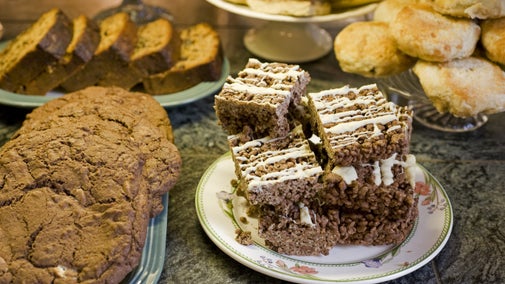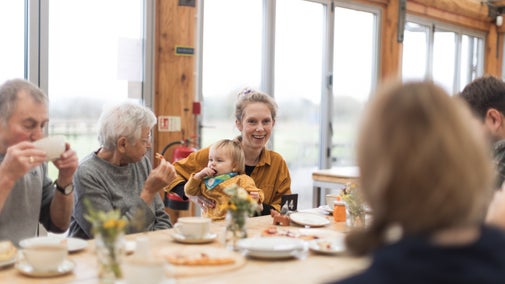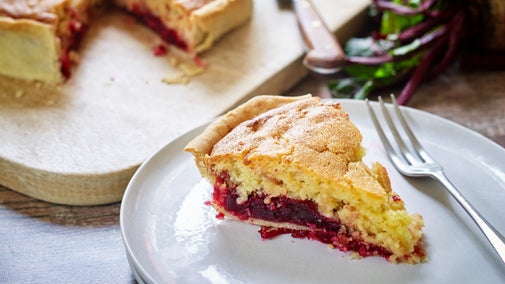
Recipes
From tried and tested classic bakes to healthy dishes the whole family can enjoy, find inspiration for your next meal.
With a sticky caramel glaze and soft scone centre, these salted caramel and butternut squash scones are an indulgent sweet and salty treat. Serve them with a dollop of clotted cream and an extra drizzle of caramel.

If you don't have a mixer, you can make these scones with a standard mixing bowl and spoon.
Pre-heat the oven to 180°C (160°C fan/gas mark 4) and line a baking tray with parchment paper.
Put the flour and margarine into the bowl of your mixer. Attach the paddle beater and mix on a low speed for 3–4 minutes, or until the mixture resembles fine breadcrumbs.
Add in the caster sugar, baking powder, a pinch of sea salt and the grated butternut squash. Gently mix together to combine.
Remove the paddle beater and replace with the dough hook. Add the caramel and ¾ of the oat drink into your dry mix. Combine everything together until you form a shaggy dough – everything should be combined but the dough should still be a little lumpy. If the dough is looking a bit dry, add in some more oat drink.
Tip the mixture onto a lightly floured work surface. Using your hands, gently work the dough until everything is fully combined.
Roll out the dough so it's roughly 4cm thick. Use a 7cm straight-edged cutter to cut out 12 scones. You'll need to roll out the dough again and cut out the scones a few times to use up all the dough.
Place the scones onto your lined baking tray. Brush the top of each scone with a little oat drink.
Place in the oven and bake them for 17–25 minutes until risen and lightly coloured. The scones should feel light when you pick them up.
Place a small amount of caramel on top of each one and spread it around a little with a spoon. It's best to do this while the scones are still warm from the oven.
After spreading the caramel on top of the scones, sprinkle a few flakes of sea salt on each for a finishing touch.

From tried and tested classic bakes to healthy dishes the whole family can enjoy, find inspiration for your next meal.
The recipes on our website might differ from those served at the places in our care as they’re adapted for you to make at home.

Discover a range of cafés, restaurants and tea-rooms at the places in our care across England, Wales and Northern Ireland. Find a place to eat near you, as well as special deals and allergen information.

This recipe might sound a bit unusual but it is satisfyingly savoury and simple to make. Perfect as a light lunch or part of a delicious dinner.

We love food and we've got some great recipes to prove it. Here are some of our favourite cakes, bakes and dessert recipes from our chefs and local experts.
